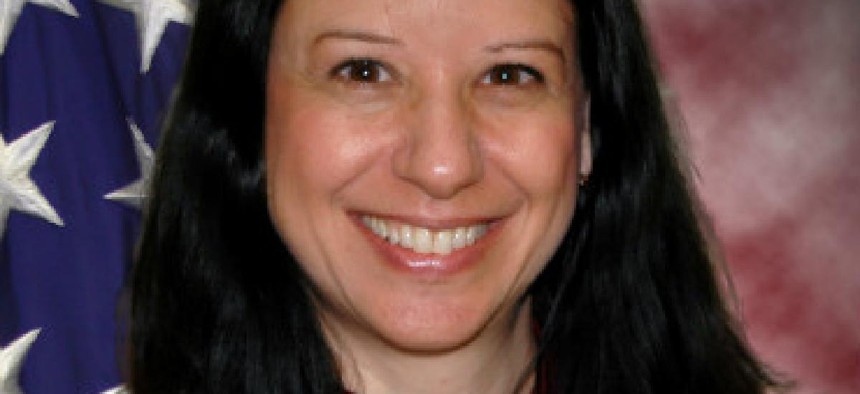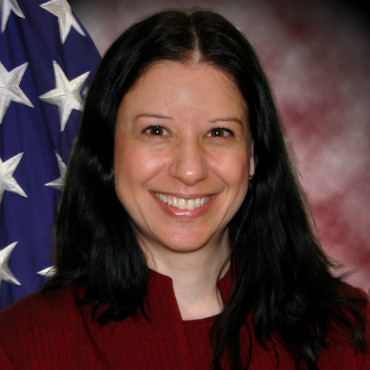DHS nominee grilled on wall costs


Elaine Duke is President Trump's nominee for the number two job at the Department of Homeland Security.
Democrats on the Senate Homeland Security and Governmental Affairs Committee hammered President Donald Trump's nominee for the Department of Homeland Security's second in command with questions about how the agency will fund and build the wall along the southern border.
In the committee's March 8 confirmation hearing for DHS deputy secretary nominee Elaine Duke, committee ranking member, Sen. Claire McCaskill (D-Mo.) repeatedly asked what it will take to build the president's proposed border wall and demanded specific cost analyses of the project.
McCaskill asked whether other components, including potentially critical security assets and personnel at the Transportation Security Administration, would take a hit in funding in favor of funding the wall.
The wall is a major acquisition, McCaskill said, but there has been no real benefit analysis of the project's effectiveness. A threat analysis, balancing the risk for one component's mission with the wall, she said, also hasn't been performed. She also noted that the agency had sent out a request for information on preliminary wall construction, despite the lack of analysis.
"Does it make more sense to build a wall and cut the Coast Guard's ability to intercept heroin "coming into the country?" McCaskill asked.
"Business would not embark on a multi-billion project without a cost/benefit analysis," she said later.
The TSA's Visible Intermodal Prevention and Response teams that patrol locations such as railroad and bus stations and ferries could also see budget cuts in favor of funding the wall, McCaskill said. "Are they less important" than building parts of the wall in remote, rugged areas on the border where it may not be effective? she asked.
Committee member Sen. Maggie Hassan (D-N.H) also asked Duke about news reports that TSA and the Coast Guard face billions of dollars in cuts in the president's upcoming budget to fund wall construction. "Aviation is still targeted" by terrorists, she said, because of the severe impact attacks attacks there can produce on the country. Cuts to the Coast Guard, she said, could push drug cartels to move their smuggling operations to the high seas when they the weakness there.
"I can't understand the logic" in building the wall and "gutting the Coast Guard," she said.
Later, McCaskill noted that the money that might be spent building a wall might be used to bolster bandwidth at ports of entry so border agents could actually use radio frequency [ID] capabilities on visa cards. "There's no bandwidth at processing centers," he said.
Duke responded to both senators saying Customs and Border Protection was in the process of doing studies on the wall's costs, security potential, as well as how it should be acquired and built. She also promised to take a broad look at additional technologies that could be used along the border to bolster security.
"The wall includes technology and infrastructure … We don't intend to discontinue use of technology" in favor of a wall, she told Sen. Jon Tester (D-Mont.) in response his question about using other technologies, including off-the-shelf products along the southern border.
Later in the hearing, Duke told Sen. James Lankford (R-Okla.) that she would battle DHS' overall historically slow and costly acquisition processes on two fronts.
Projects should have operational needs spelled out and addressed before they turn into actual acquisitions at the agency and its components, Duke said. Second, she would work to implement a more agile approach, saying she favored "modular approaches and not huge fixes."
Duke has long experience with DHS and with acquisitions. Both were acknowledged as very positive assets by committee members during the hearing.
She had served as undersecretary for management at DHS during President George W. Bush's administration. Before joining the senior ranks of DHS, she was deputy assistant administrator for acquisition at the Transportation Security Administration, where she oversaw the agency's post 9/11 acquisition program that federalized passenger and baggage screening at U.S. airports. Before that, she held various positions with the Department of Defense.
She left government service in 2010 to work as an acquisition and business consultant.
In her written testimony, Duke noted that her last position at DHS before retiring was the Senate-confirmed undersecretary for management. "I understand firsthand the challenges of DHS' missions, structure, and complex oversight; the diverse concerns of its many stakeholders; the urgency of the work; and the complexity of running the department," she said.


